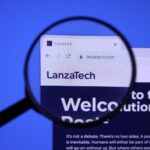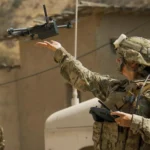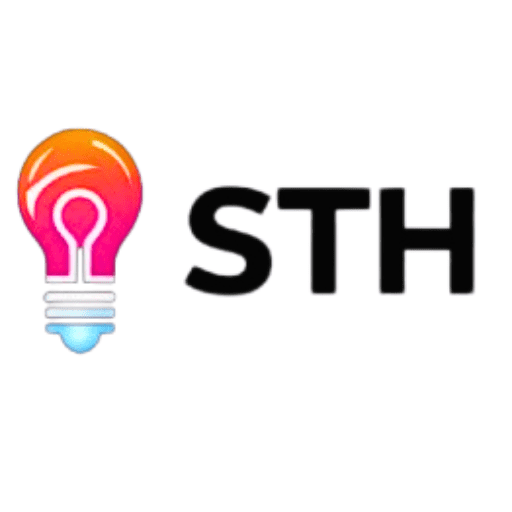Nuro operates as a leading autonomous vehicle startup from the United States dedicated to transforming future delivery service operations. The company focuses exclusively on developing driverless delivery vehicles since its strategy differs from standard companies that work with passenger transportation. Nuro’s founders Jiajun Zhu and Dave Ferguson started the company in 2016 after leaving Google to combine robotics and artificial intelligence in their efforts for reconstructing final-mile logistics.
The Vision Behind Nuro
Nuro pursues its core objective to build smarter delivery services through autonomous technology systems that protect both efficiency and operational access. The rising marketplace demand for touch-free delivery has led Nuro to tackle problems within local trade while simultaneously reducing traffic congestion and increasing delivery performance.
Technological Innovations
They stands out from other companies through its specialized autonomous cargo vehicles instead of passenger vehicles. Nuro has released various vehicle models from its product lineup.
The R1 marks Nuro’s debut product as an independently steering delivery vehicle that carries urban-cargo optimally while maintaining a compact structure.
The enhanced variant of R1 named R2 integrates updated sensors together with greater carrying capability and obtains required certifications to roll out.
Nuro and BYD jointly developed the third-generation vehicle that brings together advanced AI technology with better energy efficiency characteristics and modern safety innovations.

How Nuro’s Vehicles Work
The vehicles of Nuro function through multiple technological integrations that guide their operations.
This equipment uses lidar sensors to create precise three-hundred-sixty-degree viewing capability which scans all directions surrounding the unit.
Radar systems together with cameras help detect both transportation items and signal controls and moving people on the streets.
Artificial intelligence features in advanced algorithms enable instant decisions combined with automatic safe navigation through complicated city environments.
Nuro’s vehicles implement an all-electric powertrain system which drives the achievement of sustainable and environmentally friendly logistics services.
Key Partnerships and Deployments
There speeds up adoption by teaming up with prestigious retailer and service providers which include:
Kroger serves as the initial partnership through which Nuro delivers autonomous grocery items.
There Revolutionizing Autonomous Delivery in the USA
They speeds up adoption by teaming up with prestigious retailer and service providers which include:
Kroger serves as the initial partnership through which Nuro delivers autonomous grocery items.
They completed Series D Funding in 2022 when investments from Fidelity Management and Tencent together with Tiger Global Management raised its value to $8.6 billion.
Investor Profile
Significant financial and technology companies support Nuro because they recognize that autonomous delivery has major business potential. Key investors include:
SoftBank Vision Fund serves as a leading investor in artificial intelligence automation solutions by providing major financial support to Nuro.
The investment from Google Ventures (GV) demonstrates the deep belief of tech giant Google about autonomous logistics.
Fidelity Management & Research: A well-known institutional investor supporting high-growth startups.
Through investments Tiger Global Management and Tencent bring both financial funding and strategic knowledge needed for international autonomous market entry.
Potential IPO and Public Market Entry
The private status of there continues to receive attention due to rising conversation about their future Initial Public Offering
Self-driving technology companies operated by Waymo and Tesla present strong competition to Nuro and other market participants.
The decision of Nuro to go public would likely involve listing on NASDAQ to gain interest from retail and institutional investors who focus on robotics and AI combined with logistics automation technologies.

Nuro’s Founders and Their Journey
Nuro emerged in 2016 as an initiative between engineering experts Jiajun Zhu and Dave Ferguson who specialize in robotics and artificial intelligence. The co-founders Zhang Jiajun and David Ferguson built their professional experience at Waymo starting from their time at Google’s autonomous vehicle research project.
Jiajun Zhu
The Chinese native Jiajun Zhu obtained his Computer Science Ph.D. from the University of Virginia. The algorithms and machine learning applications of Google received substantial development input from him during his time at the company. The duo established Nuro to expand autonomous systems into commercial goods transport because they wished to enhance the delivery process through safer and more efficient systems.
Dave Ferguson
Dave Ferguson worked toward his Ph.D. at Carnegie Mellon University which maintains a position as one of the top research centers for autonomous systems worldwide. During his time at Google he devoted much effort to artificial intelligence projects which led to his meeting Zhu. The belief in the power of AI logistics drove Ferguson to partner with Zhu in building Nuro specifically for last-mile delivery systems.
The World Views Nuro As Its Transformational Power
The company Nu-ro transformed logistics and urban transport systems and automation functionalities. Here’s how:
- Autonomous Delivery Solutions
The autonomous vehicles manufactured by Nu-ro operate as a safe platform for transporting goods throughout their delivery routes. Nu-ro delivers cost-saving benefits to retailers along with food delivery services and logistics firms which enables more affordable last-mile delivering solutions.
- Reducing Traffic Congestion and Pollution
The electric delivery vehicles Nu-ro operates compact enough to use less energy compared to typical gas-powered delivery trucks. The small wheels of these vehicles access the road area efficiently which decreases traffic jams and reduces harmful greenhouse gases to support environmental conservation.
- Enhancing Safety on the Roads
Regular delivery vehicles cause unfortunate traffic collisions together with unsafe situations for pedestrians. The AI-powered system developed by Nu-ro serves to enhance safety because it gets rid of human mistakes which ensures safe package delivery through limited risk exposure to both pedestrians and other motorists.
- Transforming Retail and E-commerce
Nuro gives customers automated contactless shopping experiences through its alliances with retail giants Kroger, Walmart and CVS Pharmaceutical. Customers benefit from contactless automated delivery service for their groceries and medical supplies and household needs to enhance their convenience levels along with operational effectiveness.
- Supporting Local Businesses
Through its technology Nuro enables small businesses together with local restaurants to deliver products affordable and reliably by competing against major delivery services. Through equal playing opportunities Nuro generates improved economic expansion for smaller businesses.
- Emergency and Healthcare Applications
Nuro’s vehicles have potential applications beyond commercial delivery which include moving medical supplies and laboratory specimens and pharmaceutical products to produce rapid and efficient healthcare management.
The Main Ways Nuro Sets Itself Apart from Other Rival Companies
The distinctive attributes which set Nu-ro apart from its competitors Amazon’s Zoox, Waymo, Tesla and Cruise include:
- Nuro concentrates on producing self-driving vehicles for merchandise transportation instead of passenger autonomy.
Nuro set itself apart from competitors Waymo and Tesla because it exclusively deals with developing autonomous delivery solutions rather than autonomous passenger technology. The design of the vehicles and enhanced safety features coupled with reduced regulatory hurdles becomes possible because Nu-ro focuses solely on goods transportation.
- Purpose-Built Autonomous Vehicles
Nuro designed its R2 vehicle and other products solely for delivery needs. The autos possess no driver compartment and minimum traditional car components which enables Nu-ro to operate at lower costs than competitors who modify standard passenger vehicles.
- Regulatory Approvals and Partnerships
The U.S. Department of Transportation provided Nu-ro with exclusive permissions to run its self-driving vehicles in multiple states through regulatory exemptions. Nu-ro has successfully formed extensive cooperative agreements with major companies like Walmart and Domino’s Pizza as evidence of its scaled deployment.
- Commitment to Sustainability
The vehicles operated by Nu-ro utilize complete electric power systems to decrease environmental harm. Nu-ro leads the urban eco-friendly market since it bypasses competitors who operate vehicles with either hybrid or gas power.
- Competitive Pricing and Accessibility
The absence of human pilots and complete passenger vehicle components decreases operational costs for Nu-ro. Its delivery solutions maintain lower operating prices which enables businesses to purchase them at affordable rates and also helps distinguish Nu-ro from competitors who use traditional gigwork-based delivery systems.
The Growth and Expansion Strategy of Nuro
Nu-ro is advancing its operations by signing strategic partnerships and creating new technologies and through a rising number of deployments throughout the United States. The company is actively:
The company plans to grow by sending additional autonomous delivery vehicles to major urban locations throughout Houston, Phoenix and Mountain View.
The company works to establish strategic partnerships with retail outlets and food delivery services and healthcare providers for autonomous delivery service development.
The company dedicates research and development funds to enhance AI systems and protect vehicle safety and build next-generation delivery platforms.
Nu-ro studies market entry throughout different countries with strong demand for autonomous logistics services.
The company aims to achieve vital regulatory authorizations which adapt to autonomous vehicle guidelines to make possible extensive commercial market entry.
How the American Government Supports Nuro
Several government programs support autonomous vehicle innovation and Nuro has received multiple benefits from these initiatives through the U.S. government.
Nuro receives exemptions from U.S. Department of Transportation regulations about side mirrors and windshield wipers since these features do not apply to autonomous delivery vehicles. The regulations give Nuro authorization to use its vehicles lawfully and run its operations smoothly.
The production and testing of autonomous vehicles receives support from both federal government agencies and state governments through newly established legislation in Texas and California. The policies allow Nuro to grow its business operations.
The government maintains funding programs that contribute to autonomous vehicle safety research alongside active industrial partnerships designed to improve security platforms and AI capabilities.
The infrastructure commitment of federal and state programs maintains better infrastructure for autonomous vehicles through which Nuro can implement its technology more seamlessly in urban areas.
Forceful tax incentives and funding channels exist for Nuro because they aid in developing electric and autonomous vehicles while lowering operational expenses through clean energy incentives.

Conclusion
The autonomous delivery field has a compelling company in Nuro because of its momentum from financial backers and technological development. The company currently does not offer a stock trading option but plans an IPO that could open investment opportunities within automated and AI-driven logistics for the future. The leadership of Jiajun Zhu and Dave Ferguson has successfully demonstrated through Nuro that Artificial Intelligence and robotics technologies will modernize the delivery process to achieve higher efficiency. Nuro continuously transforms the delivery of goods through its advanced technology and business partnerships that produces smarter cities and higher efficiency while enhancing environmental sustainability.












